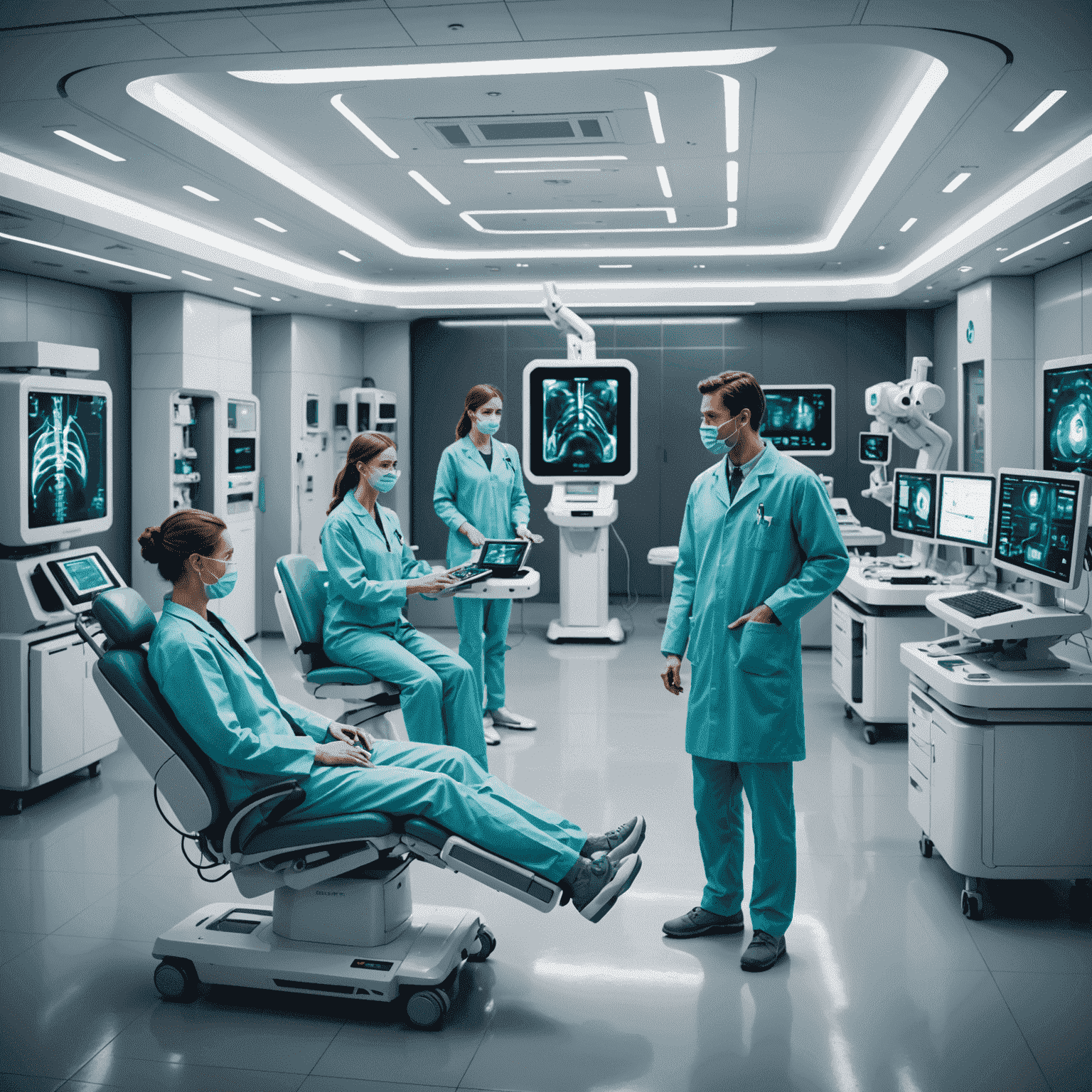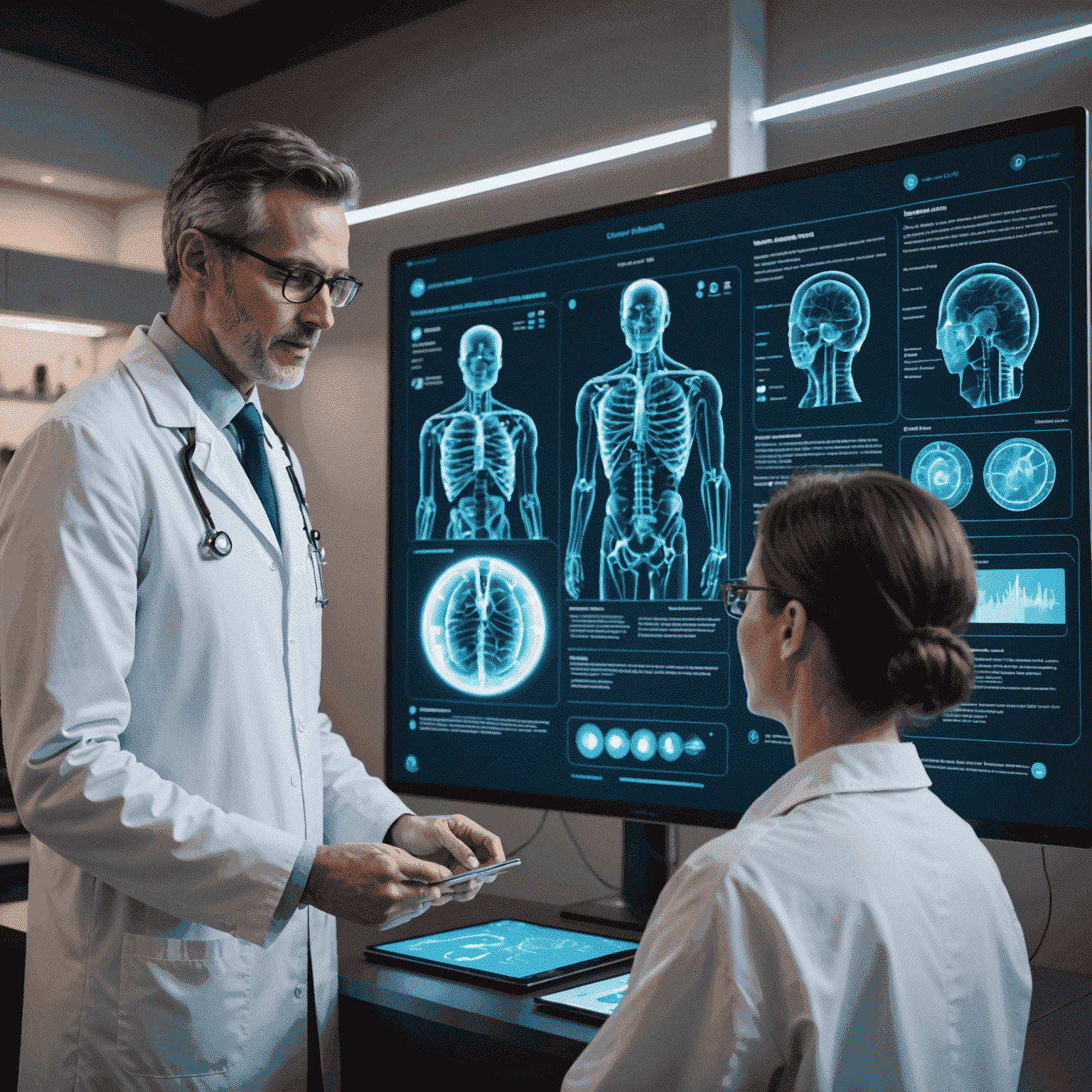AI in Healthcare: Revolutionizing Medical Care

Artificial Intelligence is reshaping the landscape of healthcare, bringing unprecedented advancements in diagnosis, treatment, and patient care. Let's explore how AI is transforming the medical field and improving outcomes for patients worldwide.
Enhanced Diagnostic Accuracy
AI-powered diagnostic tools are revolutionizing the way medical professionals detect and diagnose diseases. Machine learning algorithms can analyze medical images with remarkable precision, often outperforming human experts in identifying early signs of conditions like cancer, cardiovascular diseases, and neurological disorders.
Personalized Treatment Plans
By leveraging vast amounts of patient data, AI systems can generate highly personalized treatment plans. These plans take into account an individual's genetic makeup, lifestyle factors, and medical history to recommend the most effective therapies and medications, maximizing the chances of successful outcomes.

Streamlined Patient Care
AI-driven chatbots and virtual assistants are improving patient care by providing 24/7 support, answering questions, and monitoring patient conditions remotely. This technology helps reduce the burden on healthcare providers while ensuring patients receive timely attention and guidance.
Drug Discovery and Development
The pharmaceutical industry is harnessing the power of AI to accelerate drug discovery and development processes. Machine learning algorithms can analyze vast databases of molecular structures and predict potential drug candidates, significantly reducing the time and cost associated with bringing new treatments to market.
Predictive Healthcare
AI systems are becoming increasingly adept at predicting health risks and potential medical emergencies. By analyzing patterns in patient data, these systems can alert healthcare providers to intervene before a condition worsens, potentially saving lives and reducing healthcare costs.

Challenges and Ethical Considerations
While the potential of AI in healthcare is immense, it's crucial to address challenges such as data privacy, algorithmic bias, and the need for human oversight. As we continue to integrate AI into medical practices, ensuring ethical implementation and maintaining the human touch in patient care remain paramount.
The Future of AI in Healthcare
As AI technology continues to evolve, we can expect even more groundbreaking applications in healthcare. From AI-assisted surgeries to advanced wearable devices that continuously monitor health metrics, the future of medicine is poised to be more precise, personalized, and effective than ever before.
The integration of AI in healthcare represents a significant step forward in our ability to provide high-quality medical care. As we embrace these technological advancements, we move closer to a future where cutting-edge AI solutions work hand-in-hand with human expertise to improve health outcomes for people around the world.